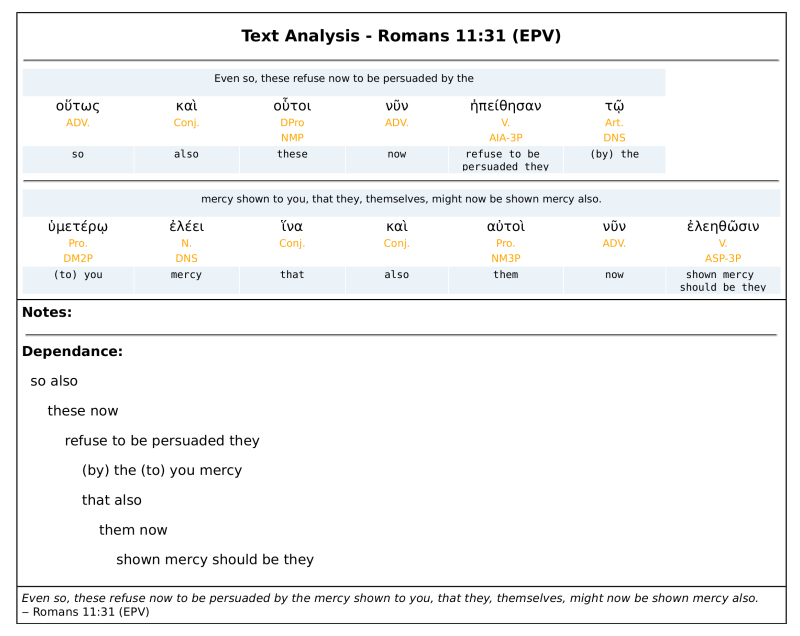The translation of Romans 11:31 has me baffled. Starting with v. 30:1
ὥσπερ γὰρ ὑμεῖς ποτε ἠπειθήσατε τῷ θεῷ
Just as you were then disobedient to Godνῦν δὲ ἠλεήθητε τῇ τούτων ἀπειθείᾳ
but now have received mercy because of their disobedienceοὕτως καὶ οὗτοι νῦν ἠπείθησαν
so they too have now been disobedientτῷ ὑμετέρῳ ἐλέει
by the mercy shown to youἵνα καὶ αὐτοὶ [νῦν] ἐλεηθῶσιν.
in order that they might also now receive mercy
The bolded phrase gets tucked into the dependent clause of the last line in nearly all translations:
so they too have now been disobedient
in order that by the mercy shown to you they also may now receive mercy.
Despite the looseness of Greek word order, I'm not accustomed to phrases that are part of a dependent clause occuring before the subordinating conjunction (ἵνα, "in order that"). I would have expected that we would need to construe it as part of the previous clause, modifying the verb "have been disobedient":
so they too have now been disobedient because of the mercy shown to you
in order that they might also now receive mercy
I'm not claiming that this makes good sense to me,2 only commenting that I can't figure out how to avoid it. Can anyone outline and/or point me to a discussion of the grammatical points that favor understanding τῷ ὑμετέρῳ ἐλέει as part of the ἵνα clause?
1. I have followed the ESV to the level of the phrase but used the Greek order for the final two lines. ESV is quoted in the second box.
2. . . . ὡς ἀνεξεραύνητα τὰ κρίματα αὐτοῦ καὶ ἀνεξιχνίαστοι αἱ ὁδοὶ αὐτοῦ.
